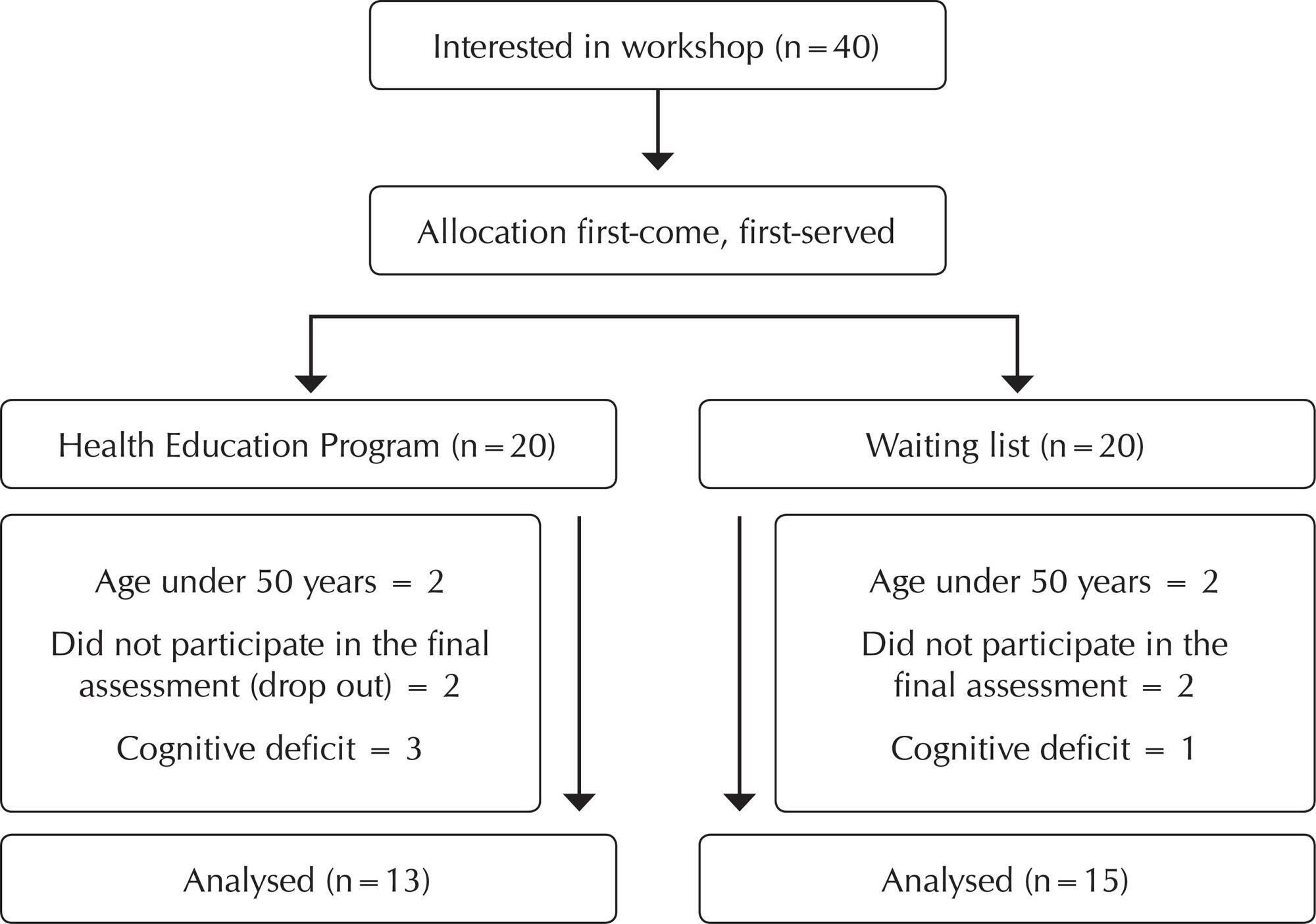Revista Brasileira de Enfermagem. 01-01-2017;70(4):814-821
DOI: 10.1590/0034-7167-2016-0638


Assess the effect of a Health Education (HE) program on cognition, mood and functional capacity of participants in a University of The Third Age (U3A).
Controlled clinical trial. The HE Program consisted of 10 sessions with group dynamics, including orientations on disease prevention and cognitive stimulation exercises, lasting four months. Intervention Group (IG) n=13; and Control Group (CG) n=15. All were assessed at the start and end of the study, using Addenbrook´s Cognitive Examination-Revised (ACE-R), Beck Depression and Anxiety Inventory (BDI/BAI) and Functional Independence Measure (FIM).
Significant improvements were observed for the IG when comparing the total ACE-R score (p=0.001) and memory domain (p=0.011) before and after the intervention. For the CG, improvement was found in the memory domain only (p=0.027).
a HE intervention program benefits the improvement in cognitive performance, particularly the memory of adults and active elderly who participated in a U3A.
Search
Search in:


Comments